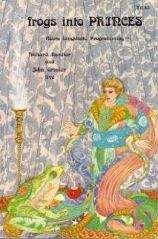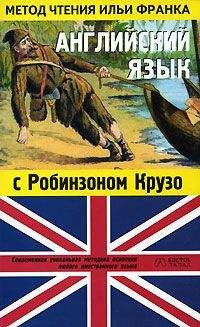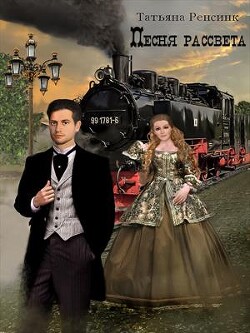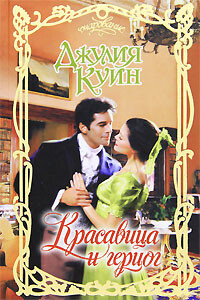James Baldwin - Английский язык с Робинзоном Крузо (в пересказе для детей)
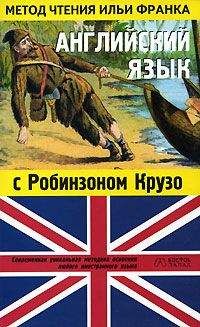
Помощь проекту
Английский язык с Робинзоном Крузо (в пересказе для детей) читать книгу онлайн
The sun shone in their faces (солнце светило в их лица; to shine) and we had a good sight of them as they came (и мы могли хорошо их рассмотреть, когда они подплывали; sight — вид; видимость).
The captain knew them all (капитан знал их всех). He said that there were three very honest fellows among them who had gone into this business against their will (что было трое очень честных людей среди них, которые ввязались в дело против своей воли). All the rest, however (все остальные, однако), were bad men who were ready to do any wicked deed (были нехорошими людьми, которые были готовы сделать любой нехороший поступок; wicked — злой, безнравственный).
We now set free two of our prisoners (мы уже освободили двоих наших пленников), for they seemed to be trustworthy men (потому что они казались надежными: «доверия достойными» людьми; trust — доверие; worthy — достойный) and glad that matters had turned in the captain's favor (и /казались/ довольными, что дело обернулось в пользу капитана).
"Can we trust them (мы можем доверять им), Captain?" I asked.
"I will stand good for them (я ручаюсь за них)," said the captain.
I gave them each a gun (я дал каждому из них по ружью). We had now seven armed men to meet the ten who were coming to the shore (у нас теперь было семеро вооруженных человек, чтобы встретить тех десятерых, которые приближались к берегу).
But we kept ourselves hidden (но мы находились у укрытии: «держали себя скрытыми/спрятанными»; to hide — прятать, укрывать) and waited to see what they would do (и ждали, чтобы увидеть, что они будут делать).
As soon as they reached the shore (как только они достигли берега) they ran to see the other boat (они побежали посмотреть другую лодку). What was their surprise to find her stripped of everything and a hole in her bottom (каково было их удивление обнаружить ее лишенной всего и с дыркой в днище; to strip — раздевать; снимать, срывать; лишать /чего-л./; отнимать, отбирать; грабить).
They shouted (они кричали), but no one answered (но никто не отвечал).
They fired off their muskets (они дали залп из своих мушкетов), making the woods ring with their echoes (заставив лес звучать от их эхо = так что раскаты от выстрелов прокатились по лесу). But still there was no answer (но все же ответа не было).
Then they launched their boat again (тогда они вновь спустили лодку на воду), and all started to the ship (и двинулись к кораблю).
But on the way they changed their minds (но по пути они изменили решение). It would never do (так не пойдет/не годится), they thought (подумали они), to leave their friends on the island (оставить их друзей на острове) without so much as hunting for them (не поискав их должным образом).
They therefore rowed back to the shore (поэтому они погребли обратно к берегу). Three men were left with the boat as guards (троих матросов оставили у лодки в качестве стражников), and the rest started out into the country to seek their lost companions (а остальные отправились по местности/углубились в местность искать потерявшихся товарищей; lost — потерянный; to lose — терять, утрачивать).
We should have been glad if they had come our way (мы были бы рады, если бы они пошли нам навстречу; way — путь; направление), so that we might have fired on them (чтобы мы смогли выстрелить по ним); but this they failed to do (но этого они этого не сделали; to fail — не исполнить, не сделать).
Night was fast coming on (ночь быстро опускалась), and they did not dare to go far from the shore (и они не осмелились уходить далеко от берега).
By and by they came back to the boat again (вскоре они вернулись к лодке).
We feared that they had given up the search (мы боялись, что они бросили поиски) and would now return to the ship (и теперь верутся на корабль).
The sun was setting (солнце заходило), and darkness would soon cover both land and sea (и темнота скоро накроет и землю, и море; both — оба, и то, и другое).
anxious [ˈæŋkʃǝs], withdrawn [wɪðˈdrɔ:n], promise [ˈprɔmɪs], succeed [sǝkˈsi:d], command [kǝˈmɑ:nd], ruffian [ˈrʌfjǝn], possible [ˈpɔsǝbl], moment [ˈmǝumǝnt], chance [tʃɑ:ns], oar [ɔ:], victory [ˈvɪkt(ǝ)rɪ], complete [kǝmˈpli:t], retire [rɪˈtaɪǝ], passenger [ˈpæsɪnʤǝ], refresh [rɪˈfreʃ], relate [rɪleɪt], crew [kru:], become [bɪˈkʌm], pirate [ˈpaɪǝrɪt], rum [rʌm], truth [tru:Ɵ], Spanish [ˈspænɪʃ], settlement [ˈsetlmǝnt], signal [sɪɡnl], launch [lɔ:ntʃ], honest [ˈɔnɪst], wicked [ˈwɪkɪd], favor [ˈfeɪvǝ], echo [ˈekǝu], guard [ɡɑ:d]
I HAVE AN ANXIOUS DAY
WHILE we were talking we had slowly withdrawn among the trees where we were sheltered from sight. The captain promised me that if we should succeed in getting control of the ship, he would do anything that I wished. He would carry me to England or to any other part of the world. He would live and die with me.
"Well, then," said I, "if you will all obey my commands, we will see what can be done."
I gave each one of them a musket, with powder and shot. I told them to kill as few of the ruffians as they could, and to make prisoners of them all if possible.
Just then we heard some of them awake. In a moment thee men came out of the grove and started down to the shore.
"Are these the ringleaders?" I asked.
"No," answered the captain.
"Well, then, let them go," I said; "but if the rest escape, it will be your fault."
With a musket in his hand and a pistol in his belt, the captain started forward. I was close at his side, while Friday and the other two men went a little ahead of us.
The mate in his eagerness chanced to step on some dry sticks which broke with a sharp noise beneath his feet. One of the seamen, hearing this, looked out and saw us.
He gave the alarm. The sleeping wretches awoke and sprang to their feet. But it was too late. Our guns were already upon them.
I need not tell you of the fight. It was sharp and short.
At its close the two ruffians who had caused all this trouble were lying dead upon the ground. The three other men, who were but slightly hurt, were our prisoners. As for my little army of five, not one was so much as scratched.
While the captain and I were binding the prisoners, Friday and the mate ran to the boat and brought away the oars and the sails.
Soon the three men who had gone down the shore came hurrying back to see what was the matter.
When they saw how matters stood, they at once gave themselves up and were bound with the rest. So our victory was complete.
We now retired to the castle.
The prisoners were led into the back part of the cave that I had first dug, and were left there with Friday as their guard.
With the captain, the mate, and the passenger, I went into my best room, where we all refreshed ourselves with such food as I had at hand.
We had now time to talk over the past and make plans for the future.
I told the captain my whole history just as I have told it to you. He, in his turn, related to me the story of his voyage from England to the West Indies, and how his crew, wishing to become pirates, had seized upon the ship and made him their prisoner.
"There are still twenty-six men on board," he said. "They are no doubt wondering what has become of their fellows. After a while some of them will be likely to come on shore to find out what is the matter."
"Let them come," I said. "We will be ready for them."
We therefore went down to the shore where the boat was still lying.
We found in it some rum, a few biscuits, a horn of powder, and five or six pounds of sugar. This last was very welcome to me, for I had not tasted sugar for several years.
All these things we carried on shore. Then we knocked a big hole in the bottom of the boat.
To tell the truth, I had but little hope that we would ever recover the ship. But I thought that after she had sailed away we might repair the boat. Then we could no doubt make our way to the Spanish settlements on the mainland.
About an hour before sunset, we heard a gun fired from the ship.
"It is as I told you," said the captain.
We saw a signal waving from the mast. Then several other shots were fired.
At last, when there was no answer either to the signals or to the guns there was a great stir on board, and the other boat was launched.
I watched them with my spyglass.
As the boat neared the shore, we saw that there were ten men in her and that they were all armed with muskets.
The sun shone in their faces and we had a good sight of them as they came.
The captain knew them all. He said that there were three very honest fellows among them who had gone into this business against their will. All the rest, however, were bad men who were ready to do any wicked deed.
We now set free two of our prisoners, for they seemed to be trustworthy men and glad that matters had turned in the captain's favor.
"Can we trust them, Captain?" I asked.
"I will stand good for them," said the captain.
I gave them each a gun. We had now seven armed men to meet the ten who were coming to the shore.
But we kept ourselves hidden and waited to see what they would do.
As soon as they reached the shore they ran to see the other boat. What was their surprise to find her stripped of everything and a hole in her bottom.
They shouted, but no one answered.
They fired off their muskets, making the woods ring with their echoes. But still there was no answer.
Then they launched their boat again, and all started to the ship.
But on the way they changed their minds. It would never do, they thought, to leave their friends on the island without so much as hunting for them.
They therefore rowed back to the shore. Three men were left with the boat as guards, and the rest started out into the country to seek their lost companions.
We should have been glad if they had come our way, so that we might have fired on them; but this they failed to do.
Night was fast coming on, and they did not dare to go far from the shore.
By and by they came back to the boat again.
We feared that they had given up the search and would now return to the ship.
The sun was setting, and darkness would soon cover both land and sea.
I AM CALLED GOVERNOR
(меня называют губернатором)
BY my orders (по моим приказам), Friday and the captain's mate hurried through the woods to the little river (Пятница и помощник капитана поспешили через лес к речке) where I had landed so long ago with my rafts (где я причалил так давно = некогда с моими плотами).
When they had reached the place (когда они добрались до того места), they shouted as loudly as they could (они стали кричать так громко, как /только/ могли).
The men who were just getting into the boat heard them (матросы, которые как раз садились в лодку, услышали их). They answered (они ответили), and ran along the shore toward the little river (и побежали вдоль берега к речке).
The three who had been left in the boat also rowed around toward the same place (те трое, что были оставлены в лодке, также погребли к тому же месту). Near the mouth of the river, however, they came to land again (около устья реки они однако вновь высадились на землю), and one of them ran along the bank of the stream to meet his fellows (и один из них побежал вдоль берега потока, чтобы встретить своих товарищей).
At this moment I rushed forward with the captain (в этот момент я бросился вперед с капитаном; to rush — броситься, устремиться), and seized the boat (и захватил лодку) before the two fellows who were in it could save themselves (прежде чем два парня, которые были в ней, смогли спастись /бегством/).
